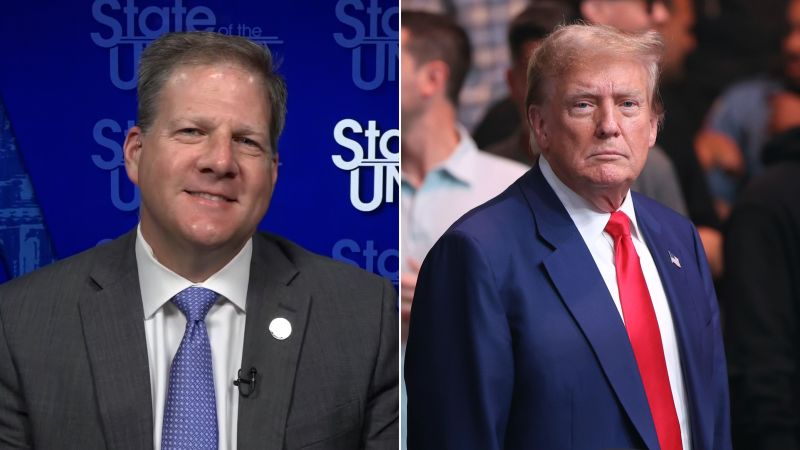In a CNN interview, New Hampshire Governor Chris Sununu discussed his decision to vote for former President Donald Trump in the 2024 presidential election, even after Trump’s felony conviction. Sununu stated that he believes Trump has a good chance of winning the Republican nomination and that he would support the party’s choice in order to defeat the Democrats. When asked if he is concerned about voting for someone with a felony conviction, Sununu responded with a nonchalant “oh sure” and emphasized the importance of defeating the opposing party in the election.
Margaret Talev, director of the Syracuse University Institute for Democracy, Journalism and Citizenship, responded to Sununu’s statements by expressing concern about the implications of supporting a candidate with a felony conviction. She highlighted the potential consequences of normalizing acceptance of such behavior in political leadership positions, and emphasized the need for elected officials to uphold standards of ethical conduct. Talev raised questions about the message being sent to the public by politicians who continue to support individuals with criminal records for high office, and called for a reevaluation of the expectations placed on public figures.
Sununu’s decision to support Trump despite his felony conviction reflects a growing trend within the Republican Party of prioritizing political victories over ethical considerations. This approach has been criticized by ethics experts and political commentators for undermining the credibility and integrity of the political process. By choosing to prioritize loyalty to a particular party figure over principles of accountability and transparency, Sununu’s actions reflect a broader shift in the political landscape towards a more polarized and divisive approach to governance.
The debate surrounding Sununu’s stance towards Trump highlights the broader tension within the Republican Party between those who prioritize loyalty to the former president and those who advocate for a return to core conservative values. This divide has been exacerbated by Trump’s continued influence within the party and his ability to rally support among his base of supporters. Sununu’s decision to support Trump in the 2024 election reflects his calculation that aligning with the former president will help him maintain influence and support within the party, despite the potential ethical implications of such a choice.
In the context of the upcoming presidential election, Sununu’s decision to support Trump despite his felony conviction raises important questions about the role of ethics and accountability in political leadership. As citizens evaluate their choices for elected officials, it is essential to consider not only the policies and platforms of candidates, but also their personal conduct and commitment to upholding ethical standards. The debate over Sununu’s decision highlights the need for greater transparency and accountability in governance, as well as the importance of maintaining high standards of integrity in public office.
Ultimately, Sununu’s decision to support Trump in the 2024 presidential election reflects a broader shift in the political landscape towards prioritizing loyalty and political expediency over ethical considerations. As citizens and elected officials grapple with the implications of this trend, it is essential to uphold values of transparency, accountability, and ethical conduct in political leadership. By critically evaluating the actions and statements of public figures like Sununu, we can work towards a more ethical and responsible approach to governance that prioritizes the interests of the public and upholds democratic principles.













